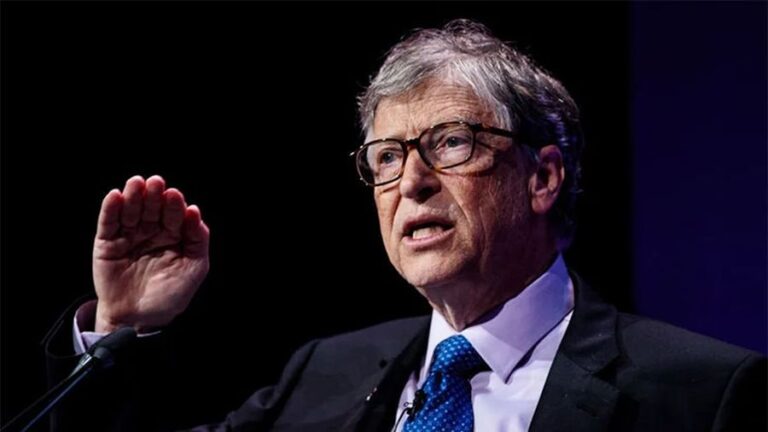U.S. National Security Searches for a Strategy
The end of the year is full of goodies. I watched with glee the 128 to 9 vote at the United Nations condemning the Trump Administration decision to move the U.S. Embassy to Jerusalem and was even more amused when the Associated Press and the New York Post tried to twist the story into a victory for the United States and Israel because the outcome might have been even more lopsided. CNN’s Jake Tapper, a vocal critic of Trump in nearly everything, also cheered the White House decision, demonstrating once again that loyalty to his tribe is more important to him than doing the right thing for the American people.
Also last week I watched what had been described as President Donald Trump’s annual National Security Strategy (NSS) review speech, the first he has given since assuming office. Having missed the first two minutes while letting our bulldog Dudley out for routine maintenance, I came back and wondered if someone had changed the channel. Trump was going on and on in what appeared to be a campaign speech, talking about the failures of the Obama Administration before proceeding to describe how wonderful and safer everything is now that he is president.
While I am not terribly enamored of the Obama record on national security, particularly its targeted killings and its stealth wars, what turned out to be the Trump rebuttal was not what I expected, rather like a cheap shot directed against someone who can no longer respond effectively. President Trump did eventually get around to talking about national security but the presentation was clearly aimed at pleasing what Trump views as his most solid group of supporters, i.e. American voters who tend to see, as he does, the world as a place where enemies and threats prevail, requiring an always truculent response and an overwhelming military to back up the words.
Most Americans who watched the speech were probably unaware that it was a much-shortened version of a congressionally mandated 68 page long document that was put out simultaneously by the White House entitled National Security Strategy of the United States of America December 2017. The speech, its Jeremiad at the beginning aside, only partly reflected the document and in some cases actually contradicted it.
Both the speech and document were broken down into four broad categories: I. Protect the American People, the Homeland, and the American Way of Life; II. Promote American Prosperity; III. Preserve Peace Through Strength; and IV. Advance American Influence. I was particularly interested in hearing what the administration would actually do and was hoping that the speech would avoid bromides and generalized commentary. In fact, there was a lot of chest thumping and relatively little in the way of pledges for action.
The first solid commitment was to build the wall with Mexico. It was packaged by Trump as a national security issue as no nation can call itself secure if it cannot control its own borders, which happens to be a viewpoint that I would agree with though I am skeptical about the wall. This naturally segued into a condemnation of the immigration and naturalization system. Trump restated his belief that a number of Muslim countries have to be subject to travels bans, which is a view that I would disagree with as I do not necessarily think that blocking whole countries provides a real solution to security problems. But I do support Trump’s call for extreme vetting of visa applicants. Inconsistent visa processing is a general security problem and all visitors and/or refugee and asylum applicants, in my view, should be subject to greater scrutiny.
Trump also went after some other horrible features of the current immigration program. He said visa lotteries would be stopped and chain migration, whereby entire extended families have gained entry to the United States based on just one individual being allowed to enter, would also be ended. And he would cut back on H-1B visas which allow foreigners with needed skills to be granted temporary work permits. This last has largely benefited Silicon Valley and the IT industry, which hire mostly Indian technical university graduates to work for much lower pay and benefits than U.S citizens would require, eliminating jobs for Americans. These are all reasonable corrections for the system, which, as it currently stands, is best described as out-of-control.
The third and final thing that Trump promised to do was to end the sequester and give billions more to the military to modernize and equip it to confront today’s threats. This was the really bad part of the speech and evidence that the White House has been listening far too much to its generals and the neocons that have begun to re-insert themselves in the Pentagon and National Security Council. The United State already spends more on “defense” than its seven closest competitors and it is unchallenged militarily. Nor is it threatened in any serious way anywhere in the world, with the possible exception of North Korea, which knows it would certainly be obliterated if it were ever to try to use one of its developing weapons systems against the U.S.
So why do we need more weapons? Pentagon experts would say that the deterrence systems in place are old and that combat aircraft, tanks and mobile artillery are inferior to those being produced by Russia, for example. But the same experts backed by the military industrial congressional lobby continue to recommend the production of aircraft carriers, which are, for example, particularly vulnerable to new missile technologies. And all the projects are, of course, subject to cost overruns. It is all the product of a completely corrupt system which Trump appears to have bought into. He repeated the hoary notion that the United States must remain unchallenged militarily all over the world, saying “We will compete with all tools of national power to ensure that regions of the world are not dominated by one power.”
If one takes Trump at his word, the U.S. will use force worldwide to make sure that only Washington can dominate regionally, a frightening thought as it goes beyond even the wildest pretensions of George W. Bush and Barack Obama. And equally ridiculous are the potential consequences of such bullying – the White House clearly believes that it will make other nations respect us and follow our leadership whereas quite the reverse is likely to be true.
On the very limited bright side, Trump did have good things to say about the benefits derived from intelligence sharing with Russia and he also spoke about both Moscow and Beijing as “rivals” and “adversaries” instead of enemies. That was very refreshing to hear but unfortunately the printed document did not say the same thing.
The NSS report provided considerably more detail than did the speech but it also was full of generalizations and all too often relied on Washington group think to frame its options. The beginning is somewhat terrifying for one of my inclinations on foreign policy:
“An America that is safe, prosperous, and free at home is an America with the strength, confidence, and will to lead abroad. It is an America that can preserve peace, uphold liberty, and create enduring advantages for the American people. Putting America first is the duty of our government and the foundation for U.S. leadership in the world. A strong America is in the vital interests of not only the American people, but also those around the world who want to partner with the United States in pursuit of shared interests, values, and aspirations.”
One has to ask what this “lead” and “leadership” and “partner” nonsense actually represents, particularly in light of the fact that damn near the entire world just repudiated Trump’s decision to move the American Embassy in Israel as well as the nearly global rejection of his response to climate change? And Washington’s alleged need to lead has brought nothing but grief to the American people starting in Korea and continuing with Vietnam, Afghanistan, Iraq and numerous lesser stops along the way in places like Somalia, Panama and Syria. The false narrative of the threat coming from “foreigners” has actually done nothing to make Americans safer while also diminishing constitutional liberties and doing serious damage to the economy.
The printed report is much more brutal than was Trump about the dangers facing America and it is also much more carefree in the “facts” that it chooses to present. It says, with extreme hyperbole, that “China and Russia challenge American power, influence, and interests, attempting to erode American security and prosperity. They are determined to make economies less free and less fair, to grow their militaries, and to control information and data to repress their societies and expand their influence. At the same time, the dictatorships of the Democratic People’s Republic of Korea and the Islamic Republic of Iran are determined to destabilize regions, threaten Americans and our allies, and brutalize their own people.”
A somewhat more detailed account of what Moscow is up to is also contained in the written report, stating that “Russia is using subversive measures to weaken the credibility of America’s commitment to Europe, undermine transatlantic unity, and weaken European institutions and governments. With its invasions of Georgia and Ukraine, Russia demonstrated its willingness to violate the sovereignty of states in the region. Russia continues to intimidate its neighbors with threatening behavior, such as nuclear posturing and the forward deployment of offensive capabilities.”
Nearly every detail in the indictment of Russia can be challenged. Most notably, if anyone is forward deploying offensive capabilities in Eastern Europe or invading other countries it is the United States, a trend that continues under Donald Trump. Just this past week, Trump approved the sale of offensive weapons to Ukraine, which has already drawn a warning from Moscow and will make any dialogue with Russia unlikely.
And, of course, there is the usual softball for Israel claiming that “For generations the conflict between Israel and the Palestinians has been understood as the prime irritant preventing peace and prosperity in the region. Today, the threats from jihadist terrorist organizations and the threat from Iran are creating the realization that Israel is not the cause of the region’s problems.” It is a conclusion that must make the unspeakable Benjamin Netanyahu smile. One might observe that as Israel has attacked all of its neighbors since it was founded, holding its governments blameless is a formulation that others in the region might well dispute.
So the Donald Trump National Security Strategy will be more of the same, a combination of the worst ideas to emerge from his two predecessors with little in the way of mitigation. Trump might balk at going toe-to-toe with North Korea because they have the actual capability to strike back and might think they have nothing to lose if they are about to be incinerated, something no bully likes to see, but Iran is certainly in the cross hairs and you best believe they have taken notice and will be preparing. Vladimir Putin too can sit back and wonder how Trump could possibly have gotten everything so ass-backwards when he had so much latitude to get at least some things right. The National Security Strategy will deliver little in the way of security but it will provide an answer to why most of the world has come to hate the United States.
By Philip Giraldi
Source: The Unz Review







